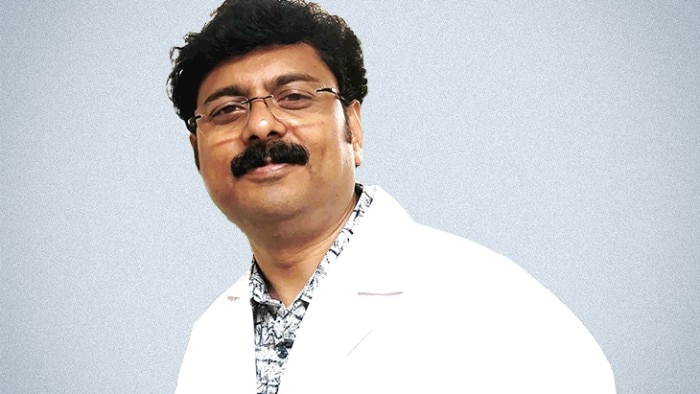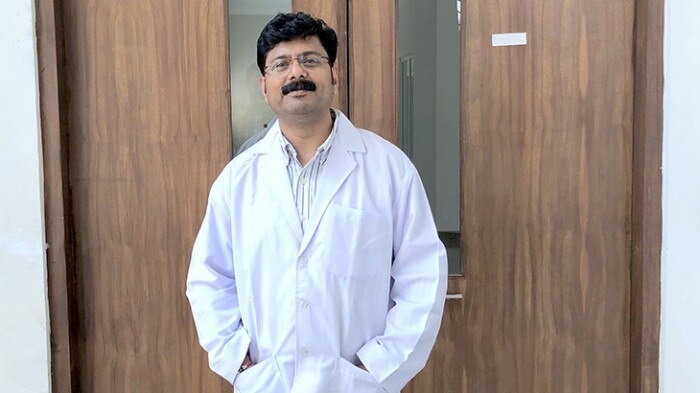You are about to leave this site.
Please be aware that your current cart is not saved yet and cannot be restored on the new site nor when you come back. If you want to save your cart please login in into your account.

Air-borne ultrafine particulate matter can lead to epigentic modifications
Lab Academy
- Health & Medicine
- Mixers & Shakers
- Academia
- Interview
In one of the most crowded countries of the world, India, air-borne ultrafine particulate matter can lead to multiple diseases. This phenomen is present in almost any large city around the globe. Dr. Mishra and his team search for low-cost nano biosensors to predict future disease susceptibility. They want to reduce "the burden of environmental associated non-communicable diseases". Dr. Mishra became a scientist because he truly loves raw science and is motivated to help the poorest people in the world. Read his interview to get more details.
My name is Dr. Pradyumna Kumar Mishra. I am working as a Scientist-F (Deputy Director) and head of the department of Molecular Biology at the ICMR – National Institute for Research in Environmental Health (NIREH) in Bhopal, India.
I am leading a working group with more than 20 people. We work in the area of Environmental Health with special emphasis on airborne particulate matter associated human pathologies. Air pollution is a decisive risk factor for human health and disease and contributes more to global morbidity and mortality than all the other combined environmental risk factors. In 2019, air pollution (both household and ambient air pollution) remained responsible for causing 6.7 million deaths.
What is your scientific project about? What are you working on?
We are making concerted efforts towards delineating a novel role of mitochondrial-induced epigenetic modifications in air-borne ultrafine particulate matter (PM0.1) consisting of black carbon, heavy metals, and polycyclic aromatic hydrocarbons. Physico-chemical properties are being examined with help of analytical tools and technologies. Exposure and developing low-cost nanobiosensors for predicting future disease susceptibility. The optical nano-biosensors we use primarily consist of semi-conductor nanocrystals (inorganic QDS, organic QDs, and QDSs synthesized using green chemistry synthesis protocols).
We employ click-chemistry to conjugate specific custom synthesized probes which recognize different types of cell-free circulating nucleic acids like methylated DNA, micro RNA, lncRNA, and mitochondrial DNA in plasma and serum as bio-matrix (well characterized biomarker with defined physico-chemical and structural attributes).
What do you want to achieve with your project?
The overarching objective of our research group is to create low-cost nano-biosensors that will help to integrate advances in bioengineering and clinical research across translational boundaries from the laboratory to the clinic and to the community and back for reducing the burden of environmental associated non-communicable diseases.
Read more
Read less

Uninterrupted flow of extra-mural project funding support.
How is working for your institute and with your lab group?
Excellent, we work as a team. We have active collaborations with scientists from Russian Federation, Poland, Belgium, Canada and South Africa. Exchange visits (both ways) under bilateral agreement is routinely done.
What motivated you to become a scientist? And why this field?
I strongly believe that Science is a tool for the benefit of humanity. Though my initial motivation was a raw love for science.
What did you imagine being a scientist is like? Is it like you imagined?
I feel blessed. Driven by a sense of duty, I continue to work hard towards fulfilling my objective.
What does your heart beat for in science?
Empowering the poorest people on the planet by helping in some form to eradicate non-communicable diseases.
Which are your main task in daily lab life?
As the Senior Basic Scientist and Group Leader, I perform several duties. Critical experiments pertaining to standardization and validation of assays are primarily done by me. I prepare the SoP, validate, and subsequently pass-on to my lab colleagues.
What do you dislike about the scientific world?
Funding crunch.
What do you dislike about your project?
I sometimes wonder whether my research would have direct impact on people’s lives, in the long-term.
Which job in a lab do you dislike most?
Nothing specific.
What do you like to do most in your lab?
Leading the research team, problem solving, conceptualizing novel ideas and work implementation.
How do you imagine your future in science / academics? What is your vision?
To create a Centre of Excellence in Translational Research with the following focus:
- Design, development and validation of point-of-care-technologies for human bio-monitoring with special emphasis on air pollution associated chronic human ailments.
- Environmental health implications of engineered nano-materials from natural, to manufactured, to those produced incidentally by human activities.
Read more
Read less
